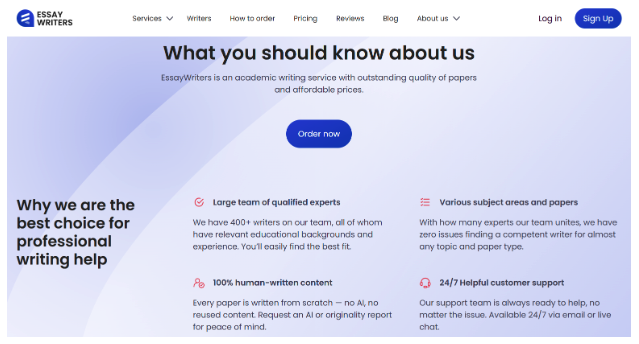A Time When You Empowered Someone Else. [Interview Answer]
This is one of those behavioral questions that seems easy to answer but in my experience interviewing hundreds of candidates over the years, most people don’t go far enough when answering. Many stop at delegation and other items, but miss out on really impressing the interviewer.
Today, I want to talk about how to leave a good impression on the interviewer when answering questions about empowering others in leadership interviews.
Why This Question Is Asked
Interviewers ask this question when they have a work environment that is autonomous and where people are empowered to innovate and make decisions. They want to protect that work culture by hiring leaders who will help them foster it.
Most people are asking for two reasons. First, they want to know that you understand the impacts and importance of empowering others. And second, they want to know that you can build teams that are empowered.
Empowering others at work leads to better employee engagement or motivation. That helps build the organization’s capacity and improves performance, productivity, and innovation. It also leads to greater retention because studies show that empowered employees are more likely to stay with their company and less likely to leave. That’s probably because when people have autonomy to make decisions, they feel purpose which leads to them becoming passionate about their work.
What Interviewers Are Looking For In Your Answer
I’ve debriefed with hundreds of hiring managers after they conduct an interview and here are some of the things they’ve said they wished candidates had talked more about.
Examples of delegating meaningful tasks and why they chose to delegate those specific tasks to specific people.
Examples of how a candidate provided resources to support others in completing their tasks.
Examples of strategies they’ve successfully used to develop others’ skills and confidence.
Examples of how the candidate fostered a culture of autonomy and independent decision-making while also having guardrails and accountability.
Evidence of how they created an environment that encouraged empowerment, initiative, and creativity.
Who Is Asked This Question
This question isn’t just asked of candidates interviewing for leadership roles. It’s also a common interview question for anyone who manages, trains, or oversees cross-functional collaboration.
This question commonly comes up in interviews for:
Managers
Project Managers
Executives
Human Resources
Educators
Enablement Specialists and Trainers
How to Answer Questions About When You Empowered Someone
There are four main components to successfully answering this interview question. Let’s walk through them.
Who You Empowered to Do What
When you begin your answer, it’s important to clarify who you empowered. This doesn’t mean a name, but rather the reporting relationship. Was it a team member that reported to you? Was it someone from a different department working on a cross-functional project with you? Was it a peer? This context can make a world of difference.
Second, you need to be specific about what you empowered them to do. Did you empower them to take on a new challenge? Did you empower them to set a more robust goal? Did you empower them to make certain decisions?
What Your Role Was
The next step is to clarify what actions you took to ensure they could deliver on their task. You might talk about how you made sure they understood the expectations, how you ensured they felt they had the autonomy to make decisions about how the work got done, and how you protected the company from any severe mistakes.
How You Followed Up
Next, tell the interviewer how you followed up on the task. This may not involve talking to your team member. It could simply be a way that you keep track of how work gets done. Either way is fine as long as you have some process or method to hold people accountable for achieving the desired results.
Long Term Effects
Finally, talk about the results of this experience. Did the other person learn a new skill? Were you able to unload a responsibility, creating more bandwidth for yourself or the team as a whole? Did the individual come up with a new way of doing something? Were there new ideas, better processes, or more efficient methods discovered? You’ll get bonus points if you can frame this as long-term results for the company, the individual, or your team.
Example of a Time When You Empowered Someone Else.
Here are some common examples I’ve heard as a response to this question (that I liked, and so did the hiring manager!)
Encouraging an Employee to Take on a New Challenge
In my previous role as a team lead, one of our junior team members showed strong analytical skills but hadn't yet taken on any major project ownership. We needed someone to lead a data analysis project, and while it was beyond their current responsibilities, I saw it as a growth opportunity.
First, I sat down with them to discuss the project scope and made it clear why I thought they were uniquely qualified for this challenge. I explained that while this was stretching beyond their comfort zone, I would provide support and guidance throughout the process. I clearly outlined expectations and gave them autonomy to make decisions while establishing checkpoints to prevent any costly mistakes.
Throughout the project, I held weekly check-ins to review progress and provide feedback, but I made sure they maintained ownership of the work. Through the process they developed a new methodology for data analysis that was actually more efficient than our previous approach.
I thought the outcome was beyond what I had originally expected - not only did they successfully complete the project, but they also gained valuable leadership experience and brought fresh perspectives to our processes. Their confidence was boosted and they really felt like their work had purpose, and they've since taken on several other high-impact initiatives. It was particularly rewarding to see how this opportunity helped them grow professionally while delivering tangible value to our team.
Encouraged an Employee to Set a New Goal
When I was the marketing manager at XYZ company, I had a copywriter who consistently produced great work but never set ambitious goals for themselves.
Rather than assigning them a goal that I would have no buy-in from them on, I scheduled a one-on-one meeting where we discussed their strengths. I asked him point-blank what he thought was possible in terms of content based on his historical performance data. And we talked about what stretching himself could do for his long-term career.
That sparked his interest and he proposed setting a more aggressive growth target without me having to even mention it. Part of that was the two of us agreeing to bi-weekly check-ins to discuss progress and remove obstacles. I also made sure he had direct communication with the stakeholders he needed to involve so he wouldn’t have to go through someone else.
While he didn’t quite reach his goal, he exceeded his previous quarter's performance by 15%, which I considered a win.
Empowered an Employee to Make Decisions
In my previous role as a software development manager, I had a situation where I empowered one of our mid-level developers to take greater ownership of our user authentication system. Rather than having them simply follow predetermined technical specifications, I scheduled a meeting to discuss their track record with security implementations and their ideas for system improvements. We talked about what they thought was possible in terms of enhancing both security and user experience, and we discussed how taking on this architectural responsibility could advance their career path.
To support their success, I established weekly architecture review sessions where they could present progress and we could address any technical blockers. I also ensured they had direct access to our security team and product stakeholders, eliminating the need to relay requirements through multiple channels.
While the implementation timeline extended slightly beyond our initial estimate, they delivered a more robust and scalable solution than originally scoped. More importantly, this experience built their technical leadership capabilities, demonstrated my trust in their expertise, and established a foundation for them to take on more complex system design decisions in future projects. The success of this initiative led to their promotion to senior developer within six months.
How Do You Empower Others
I think many new managers struggle with empowering others - at least empowering them effectively. Here are some simple ideas you can implement that will start creating an environment where others feel empowered at work.
Build Trust
Be cognizant of how you handle mistakes - not only when you make a mistake but when others do, too. Do others feel they have the safety net to make minor mistakes while at the same time knowing they will be held accountable for their actions?
Gather Feedback Often
Many people assume they know the needs of their team, but when was the last time you flat-out asked your team members about their needs and concerns? Are you providing the right support and guidance? I find this is best done through 1:1 meetings. A team that has the knowledge and tools to do their job often will feel empowered.
Model Empowerment
I alluded to this in the first one. How you hold yourself accountable, how you handle mistakes, and how you behave will set the tone for the rest of your team.
Alternative Ways This Question May Be Asked
Whenever an interviewer asks me a question, I never take it at surface level. I always think about the underlying concern that is causing them to ask me the question. When you do that, you’ll realize that there are many other questions that can be answered similar to this one. Here’s a list of some that I’ve used.
Tell me about a time when you delegated an important task to a team member. How did you ensure their success?
Describe a situation where you had to empower a struggling employee. What steps did you take?
Can you share an example of how you've created an environment that encourages initiative and creativity in your team?
Tell me about a challenging project where you had to delegate responsibilities. How did you approach the delegation process?
Describe a time when you had to balance providing support to your team while also promoting their autonomy.
How have you helped team members develop new skills or take on stretch assignments?
Tell me about a situation where you had to empower a team to make decisions without your direct involvement.
Can you describe a time when empowering others led to unexpected positive outcomes for your team or organization?
How have you handled a situation where a team member was reluctant to take on additional responsibilities?
Tell me about a time when you had to step back and let your team handle a critical situation on their own.
Describe how you've fostered a culture of empowerment in your previous roles.
Can you share an example of how you've used empowerment to improve team performance or productivity?
Tell me about a time when you had to empower a diverse team with varying skill levels. How did you approach this challenge?
How have you encouraged knowledge-sharing and mentoring within your team to empower others?
A Time When You Empowered Someone Else Recommended Reading
First-Time Supervisor Interview Questions and Answers
Answering “Describe Your Leadership Style” [Interview Questions and Answers]
Cole Sperry has been a recruiter and resume writer since 2015, working with tens of thousands of job seekers, and hundreds of employers. Today Cole runs a boutique advisory firm consulting with dozens of recruiting firms and is the Managing Editor at OptimCareers.com.
Get Smarter About Job Search
Members get exclusive job search analysis, a curated coaching feed, and on-demand coaching.













